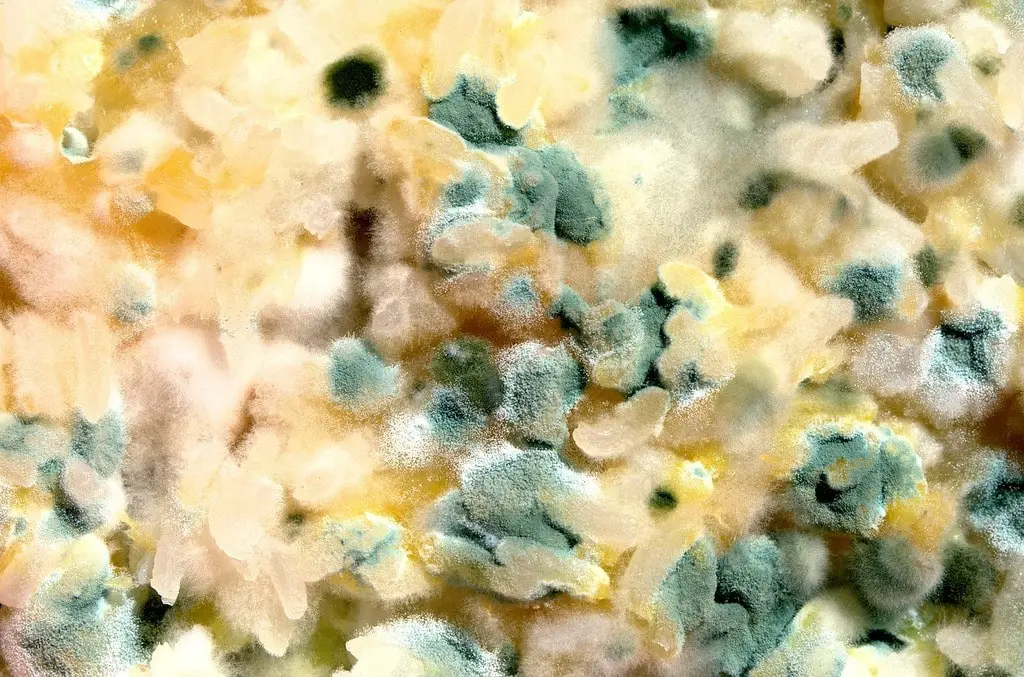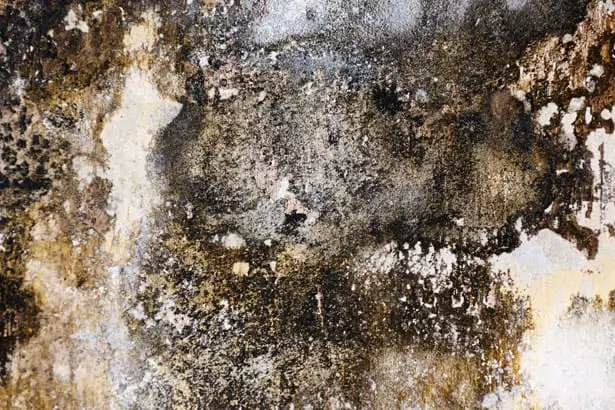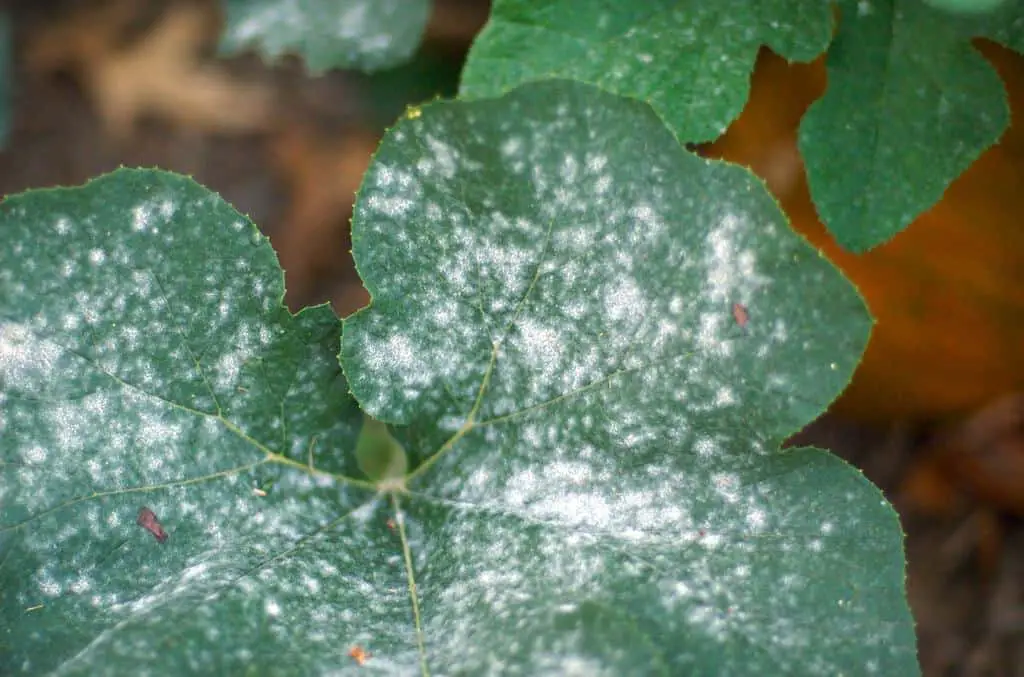My tents’ bad smell has been an ongoing issue kept bothering me for a long time. Each time I took it out of my basement, I noticed that smell, which got me frustrated over and over again. Last year I finally decided to research that issue, after two of my tents got thrown away. I’ve noticed that my tents got that bad odor after long periods of storage without usage, so that gave me a direction. Why does my tent smell? Let’s dive into it and figure out that issue once and for all.

I’ve been spending a couple of days across the internet searching for possible reasons for that and came up with one definitive conclusion.
In most cases, tents tend to smell because they develop mold and mildew. In this article I will describe that issue deeply, considering causes and possible solutions.
How Does Mold Get to My Tent?
Before answering that question, it is essential to understand what exactly mold is.
There are different kinds of mold, and each one features its characteristics. However, they are all different types of fungus.
As opposed to other plants we are familiar with in our everyday lives, mold does not depend on photosynthesis to exist.
In other words, mold does not depend on sunlight to create nutrition. Like any other fungus, mold lives through the food found upon the surface.
The one ingredient that has to be there, for a fungus to thrive, is water. For that reason, for example, mold grows much quicker on a regular bread than on a toast.
So now the rule of thumb would be as the following – if a surface contains nutrition, water, and exposed to air for a long time – there are high chances that it will grow mold over time.

The same things go for tents – after done camping, there are good chances your tent will be wet.
Whether it is condensation or just rainwater – that moisture on your tent may serve an excellent platform for mold growth. That can also be the reason your sleeping bag get damp.
That may happen if the tent got folded while being in a wet condition.
When folded tightly, water drops upon it have nowhere to evaporate. That, in turn, would serve an ongoing water resource for the unwanted fungus.
How is it Different From Mildew?
Now, after you know a little bit more about mold, explaining mildew will be much more comfortable, just because it is also a kind of fungus.
The main difference between mold and mildew is the color – while the first features a wide range of colors, the second is often white.

There are few requirements for it to grow. There has to be a surface that would provide nutrition (anything organic), a decent amount of moisture and a reasonable warmth.
Let’s say you have decided to put your tent in the attic until you next adventure, which is probably a few month (or years) away.
Now, when you are finally ready to go – you found your tent a little bit stinky with an odd white layer on it.
Well, an attic is a perfect place for mildew to grow, because it is one of the highest points in your house.
Attics usually feature a hot environment and provide ideal conditions for mildew growth since they are closed to the roof.
In addition to that, you may also find your tent covered with fungus, even in a case you didn’t pack it wet.
That could be due to the way you chose to store it in your house.
If you chose an unventilated storing place, or one with a lot of moisture – mildew, and mold would grow easily on your tent – even if packed dry.
How to Avoid Mold & Mildew?
The typical path you have to take to prevent mold or mildew from occurring is keeping everything dry.
As I’ve mentioned, there are a few key components that would haste their growth – air, nutrition, and water. Break any ingredient in that triangle – and you will be able to prevent fungi.
Since air and nutrition (which would be the surface) are hard to monitor – I suggest you focus on preventing moisture as hard as you can.
Dry Packing
That one is quite obvious, yet easy to miss. Many times when we go camping, we are just so eager to get back home – we merely gather our gear, backpack and break down our campsite.
What about the tent? Well, it is easier to fold it as it is and throw it to our truck – that, in particular, may be something we will regret in the future.
Never pack your tent when it is in a wet condition. Take a few hours extra and enjoy your surroundings while your tent is getting ventilated from the condensation it got over nighttime.
Ventilation
That is a crucial factor which should be followed both when camping and storing a tent.
As long as your tent is wet – the higher the chances for it to grow mold and mildew. Ventilate it while camping by leaving the tent’s door a bit open, or by camping in an open area.
Avoid camping next to rivers or streams – that may increase condensation. When you finally get home, make sure to dry it out by spreading it as wide as possible in the open air.
I know that almost none of the storing places would be ventilated, although, if you can choose one which is – that may be perfect.
Monitor Humidity
Humidity around your house should range between 40-50%, higher than that would increase mold growth likelihood.
There are different ways to monitor your house humidity, and if you are serious about it – you should try it out.
That wouldn’t just prevent mold from growing in your storage areas – but within your entire house.
Keep The Storage Place Dry
If you chose to store your tent in an attic or a basement, it is essential to make sure the place doesn’t leak.
That is based on the same principle as camping next to a water source. Water naturally tend to evaporate, and that in turn increase air humidity.
If water tends to enter your storage space – make sure you seal it immediately or switch to a different one.
Do Not Store Wet Gear Next to it
When it’s time to store things up – the natural tendency is to keep everything in one place.
Well, the tent isn’t the only piece of equipment which might have got wet. Your hiking footwear, backpack and sleeping bag might have damp as well, and would also evaporate water.
In that case, mold or mildew might grow all over your gear and ruin it completely. If you choose to store it all in one place – make sure that every single thing is dry beforehand.
What is The Best Way to Clean it Up?
Before explaining how you should do it, it is important to mention how not to.
You mustn’t put your tent into the washing machine! Tents usually feature gentle seams and nylon fabric which can easily be ruined by that – the right approach will be cleaning it manually.
Moreover, you should realize that once grown mold; your tent wouldn’t return to a brand new condition. You can improve its appearance, and perhaps its impact on your health.
Before getting into the general statements, I suggest that you read my article which describes 15 different ways on how to remove mold and mildew from the canvas of your tent. If you haven’t read it already – please do, I’ve spent more than eight hours pouring through the data.
So what is the right way of cleaning? First, you should spread it out completely, or perhaps even set it up – so you don’t miss a spot.
Then, use a sponge and a non-detergent soap to clean up the infected areas. Do not use any soap which has perfume in it – that might attract insects when you go camping.
Once you have finished, open the tent’s windows and let it dry under the sun. Leave it there for a couple of hours, until you are entirely sure it got dried.
That process wouldn’t do much with the smell – but it did improve it a bit and removed a decent amount of fungi.
To deal better with the smell – you should consider using MiraZyme, which is a solution based on enzymes, to deal with fungi and bacterial odors.
What is The Right Way to Store a Tent?
As I’ve already mentioned – the first step of storing your tent is to let it dry – each approach is okay as long as it does its job.
Then, you should take several steps for its storing.
First, make sure you choose a cold and dry spot. High temperature and damp will haste mold and mildew occurrence, turning your basement or attic a lousy choice.
For that, your closet or a corner in your room would be a better choice.
If you choose to go for the basement or attic, make sure to ventilate it outside once in a while, especially if you are taking long breaks between campings.
Second, you should reduce the tent’s tension and make sure it is not too compactly stored.
For that, you shouldn’t use the compact sac tents usually come with, use a meshed sack or fold it loosely into a plastic bag instead.
This will allow your tent’s fibers to breathe and will evaporate damp more easily.
How to Deal Immediately With a Bad Smell?
Let’s say you have stored your tent for a couple of months by now, and figured out it smells when it’s too late – when you already took off.
Alternatively, you may have realized that back home, yet your journey is on the day after. Is there any immediate solution for the stinky problem?
Well, there are. However, if your tent is full of mold or mildew, I highly recommend that you get a new one since it could have an adverse impact on your health.
First, you could try spraying it with a simple fabric deodorizer. Make sure you do so on an open area and let your tent to ventilate for a while after you do so.
The deodorizer, such as Febreeze, will possibly eliminate the odor. Nevertheless, it won’t solve the fundamental issue.
Another solution would be using MiraZyme, as mentioned above. Just fill a tub, add 1-2 ounces of MiraZyme and submerge your tent entirely for 10 to 15 minutes.
After that, spread your thoroughly – do not rinse it or dry it with a machine, since the active ingredient will be still working.
Are Mold & Mildew Dangerous?
Everyone encounters with mold in a way or another. Whether it’s on your sandwich, you forgot a long time ago, or on your room’s ceiling – it usually does have an impact on your health.
Different people react to mold differently. Those who are allergic to it may develop eye and throat irritation, nasal stuffiness, coughing, and wheezing.
People who are immunocompromised, such as those with an ongoing disease, may develop lung complication by inhaling the fungi spores.
On the contrary, some people may have absolutely no reaction to mold what so ever.
I suggest you don’t take unnecessary risks, and try to get a new tent in a case your’s is covered with mold or mildew.
You should consider that mold on a tent is more severe than other cases. As opposed to a room ceiling, for instance, mold on your tent’s walls or roof is physically much closer to you.
Inhaling mold that close would increase the risks of complication because the air around it is with a much higher spore concentration.
In addition to that, you inhale the air inside your tent regularly and for an extended period – during the entire night.
Combining all of these brings me to the same conclusion. In a case your tent is covered with mold – try getting a new one, not for its smell – but your health.
Conclusions
The absolute main reason for bad smell in a tent is due to mold or mildew, which are two types of fungi and are treated the same.
For these to grow over time, there has to be some humidity – in the air, or upon your tent’s surface.
The easiest way to prevent this from happening would be eliminating that water source, and there are a few ways to accomplish that.
First, you should make sure you pack your tent in a dry condition before taking off. When packed wet, there will be nowhere for condensation to evaporate.
Second, you should keep your tent in a cool place with low humidity, such as in your closet or a room’s corner. It is also recommended to pack it up loosely so its fibers will be able to breathe.
If your tent already got mold, you should first consider getting a new one, so it does not compromise your health.
If you wish to keep it, you should spread it entirely and clean it up with a soft sponge and a non-detergent soap.
You may also ease the odor by using sprays such as Febreeze or submerge it in a MiraZyme solution.

